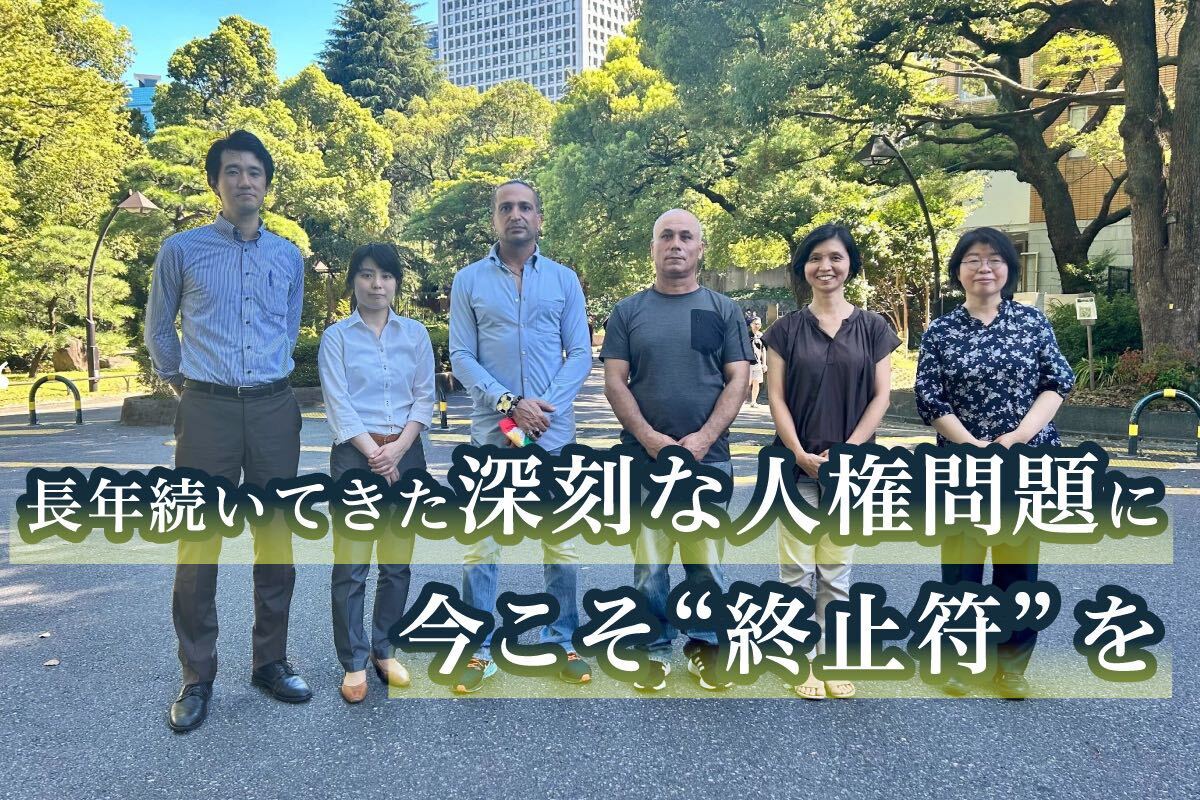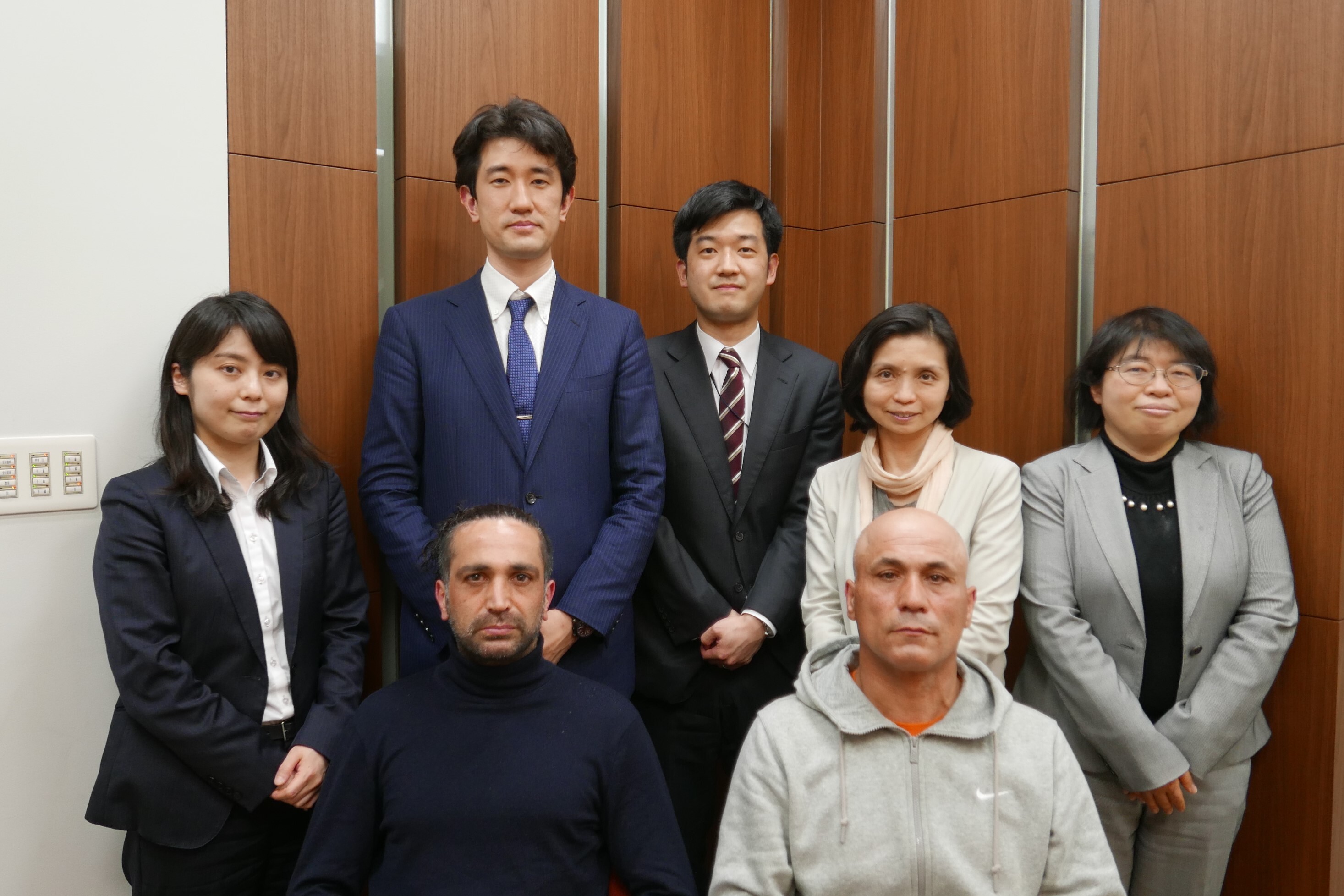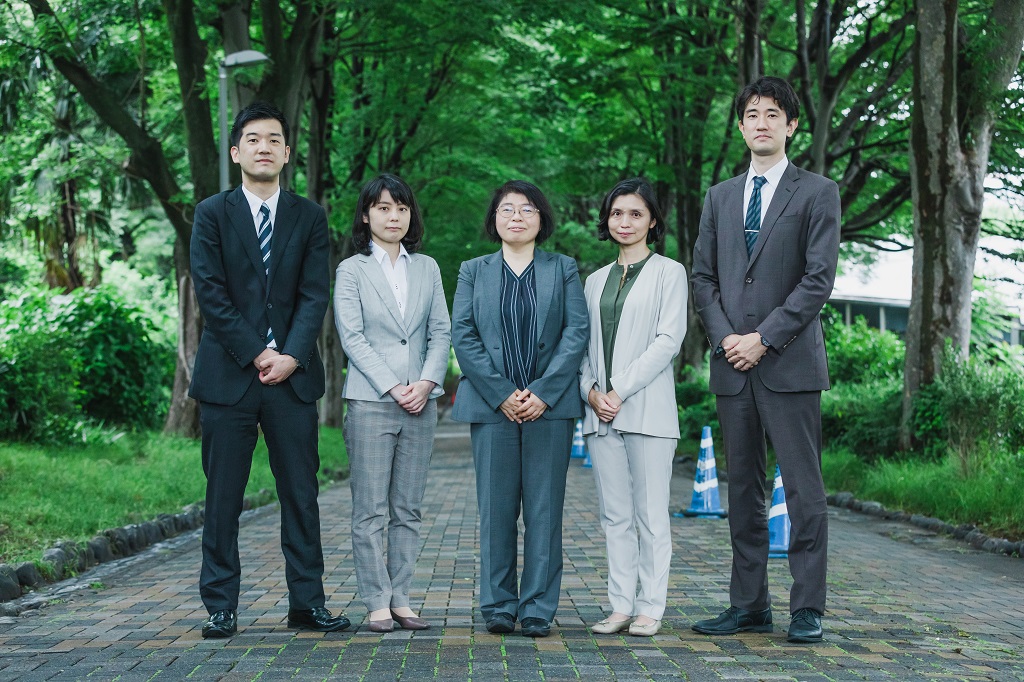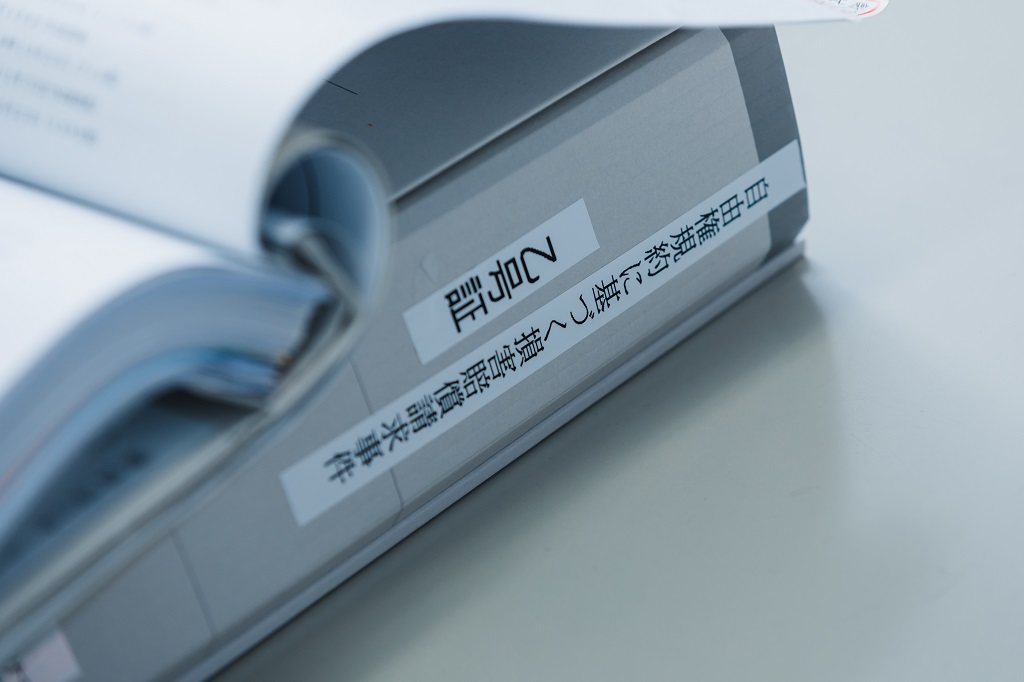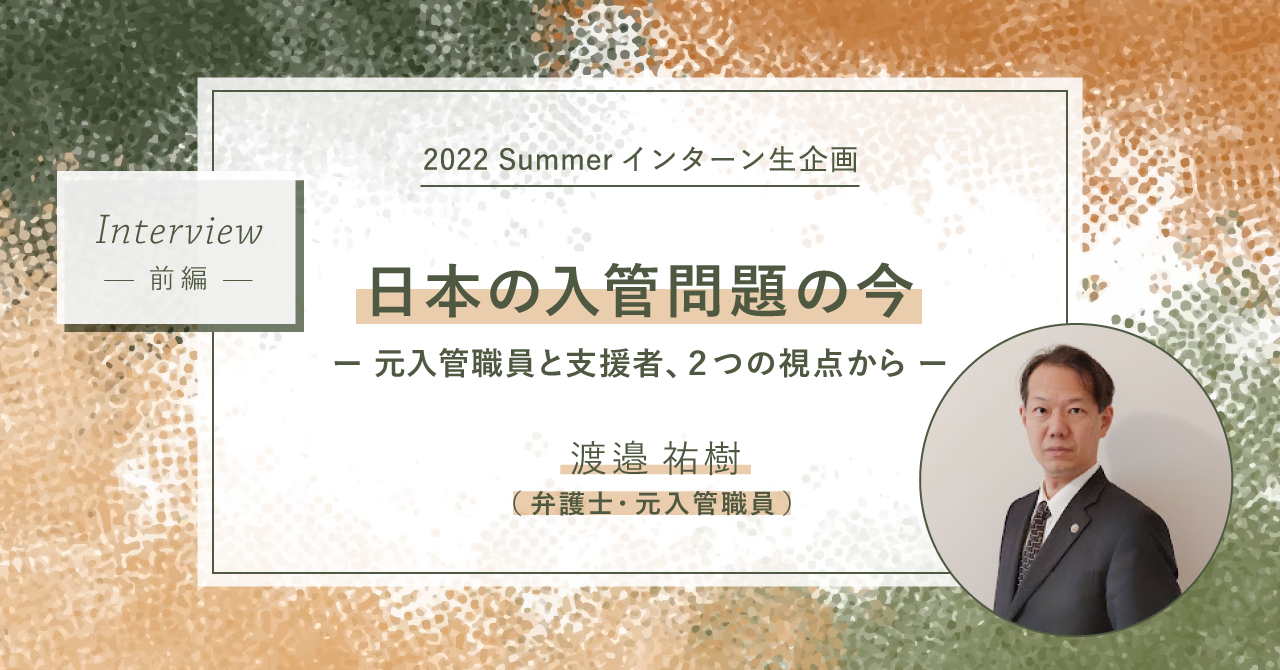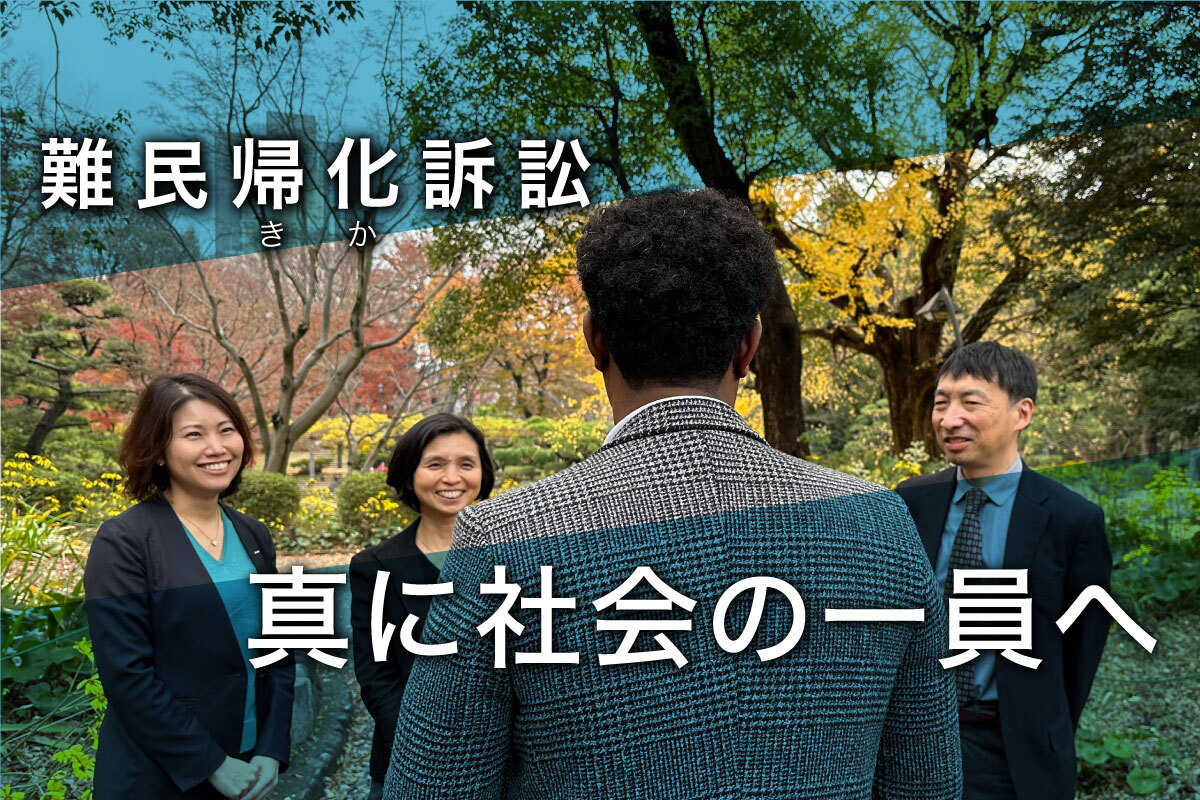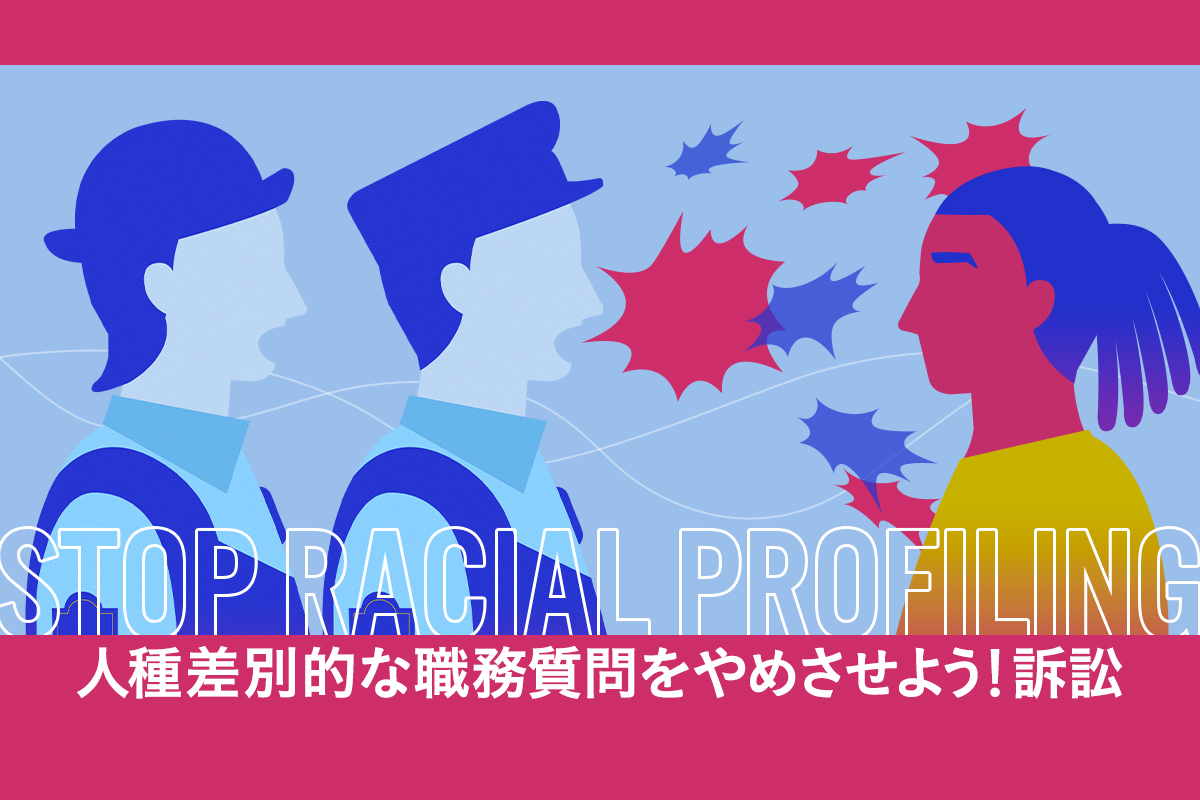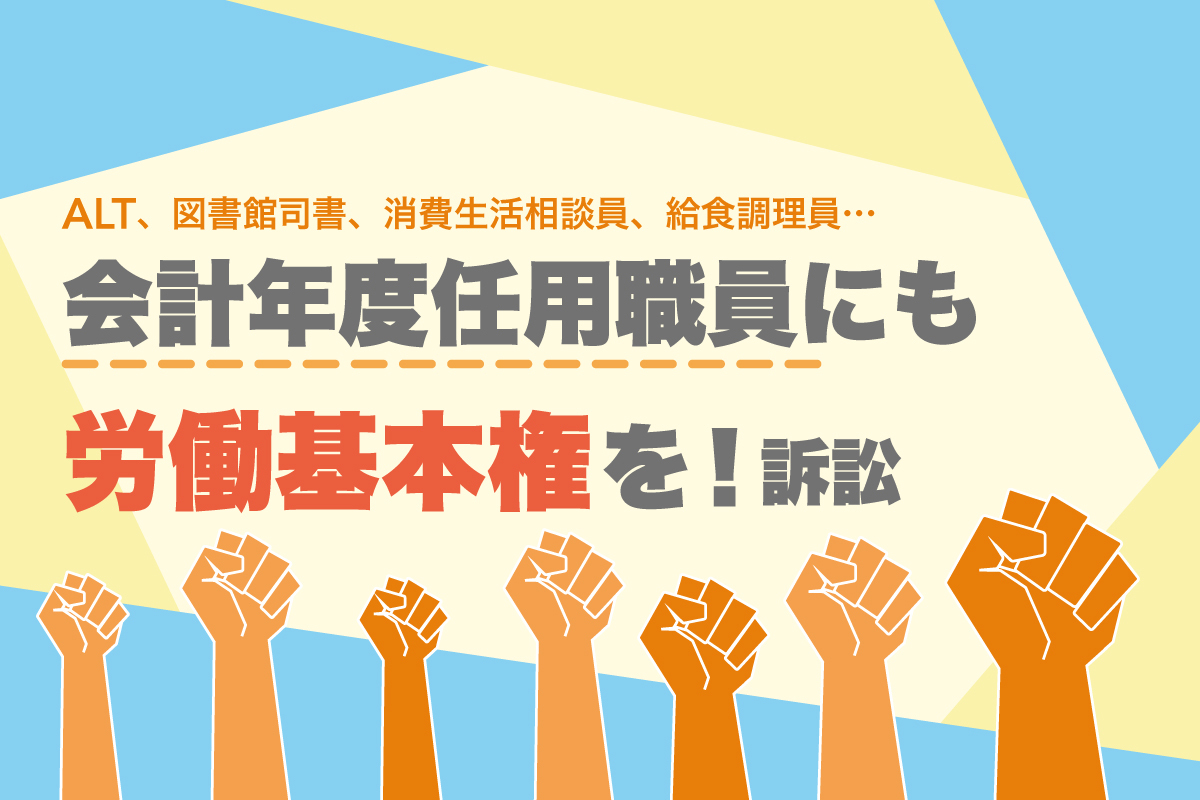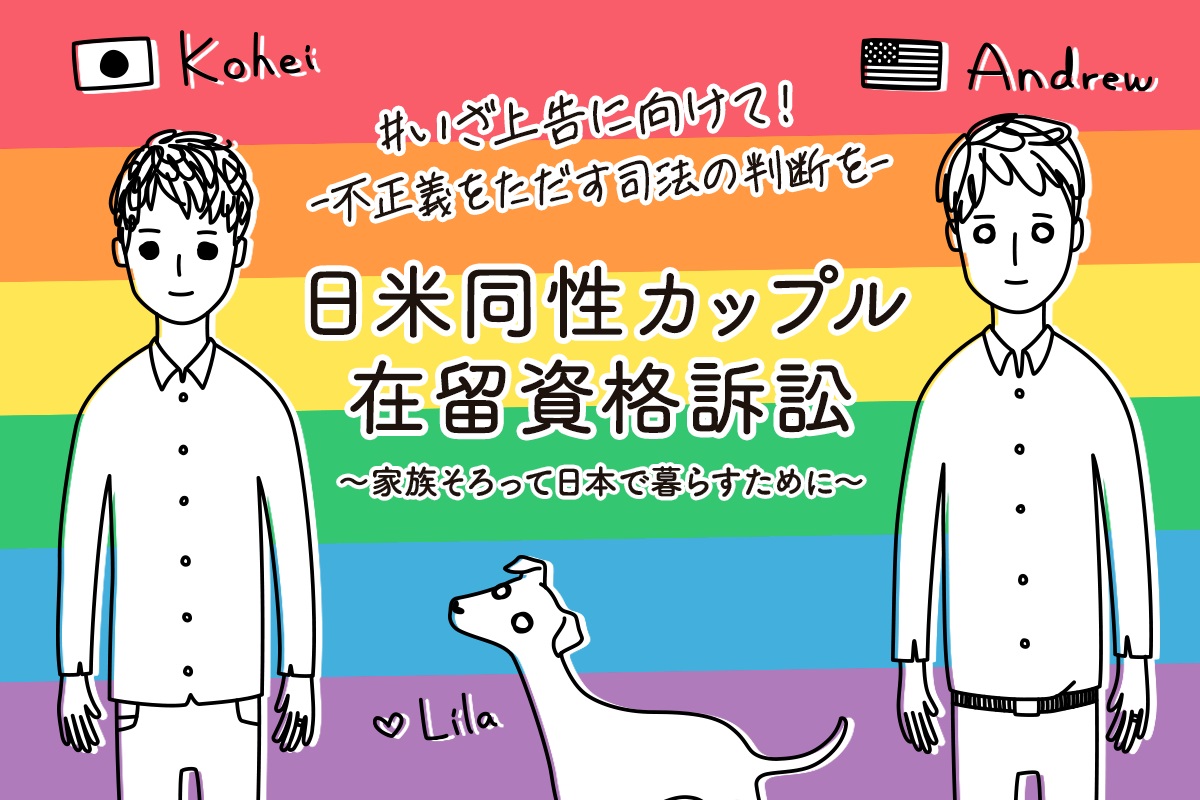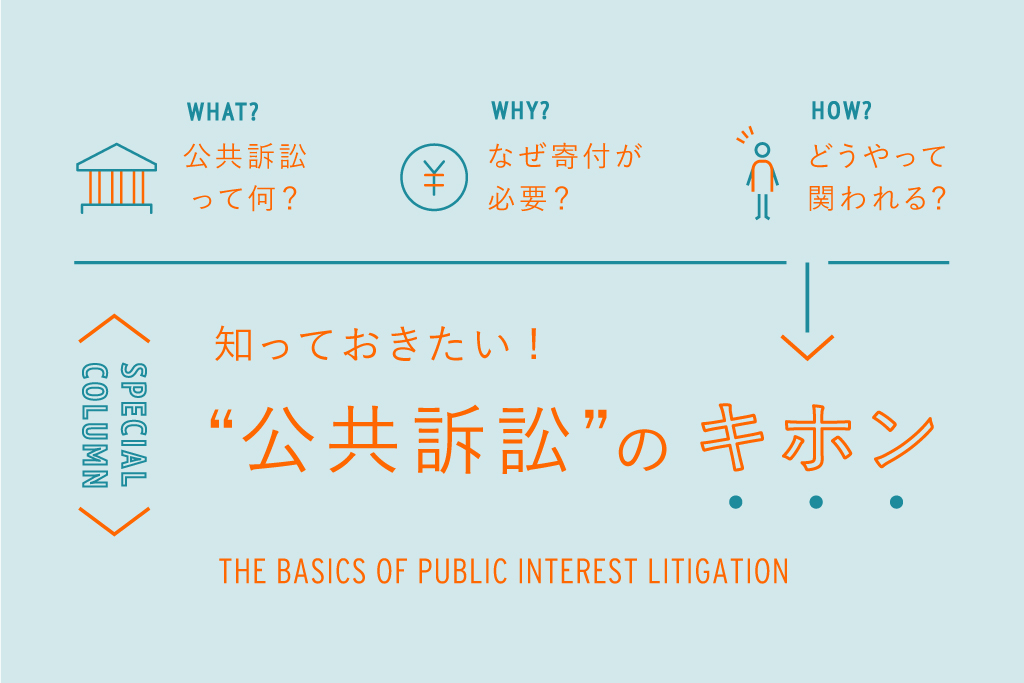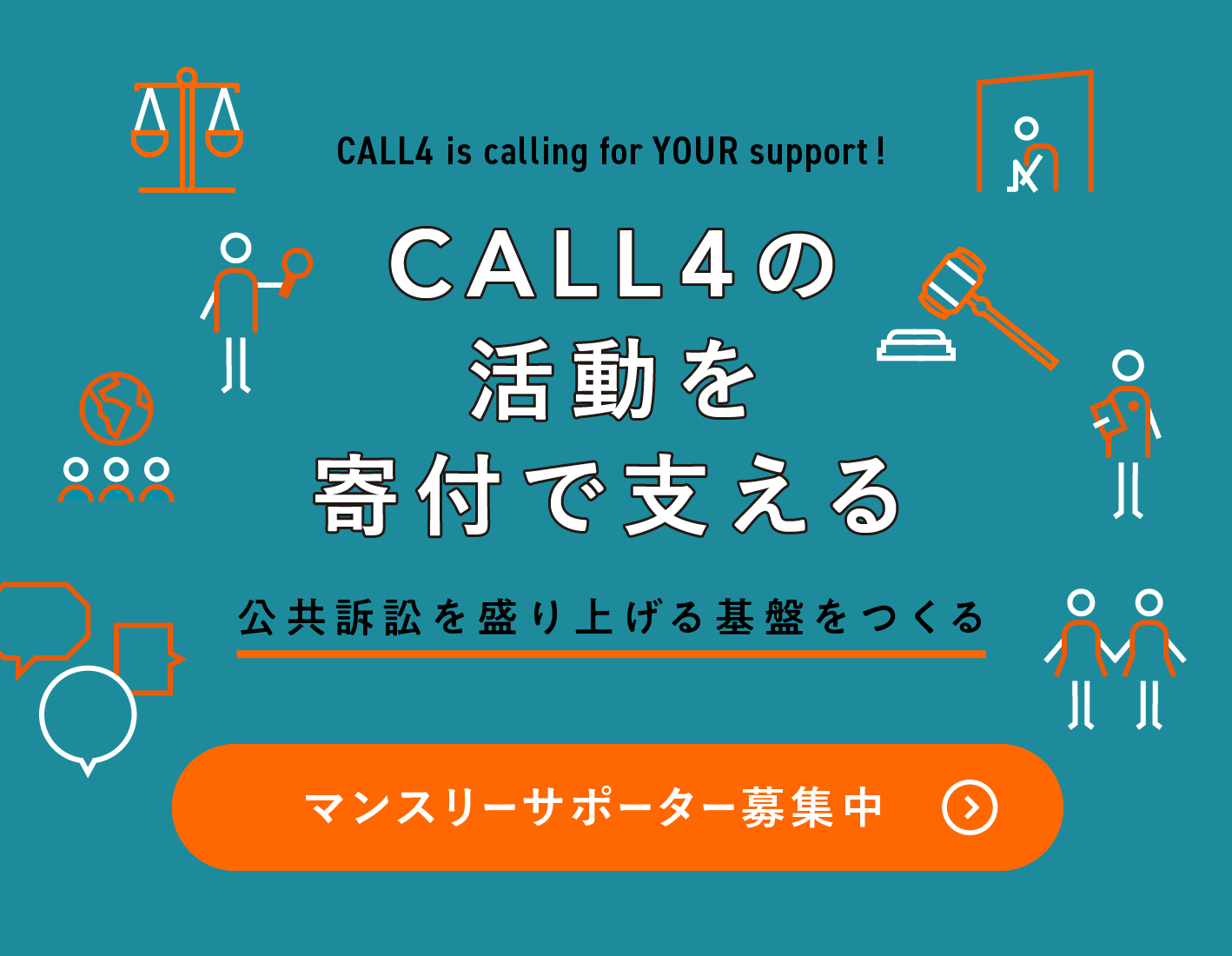<目標達成のお礼とネクスト・ステップへのご協力のお願い>
2022年5月31日の第1回裁判期日から1年、第1目標である100万円を達成することができました。
皆様からいただいたご寄付で、国際法の研究者の方に、裁判に提出する意見書の作成を依頼することができました。
弁護団一同、心より感謝申し上げます。
さらに充実した訴訟活動を行うため、ネクスト・ステップとして200万円を目指すこととしました。
2023年6月に入管法改正がありましたが、収容するかどうかを入管が決めること、司法審査がないことに変わりません。
日本の入管収容が、自由権規約の基準に満たないことを、裁判所で明らかにするため、引き続きご協力をお願いいたします。
どのような事件か
今回の裁判は、原告のサファリさんとデニズさんに対してなされた入管収容が、自由権規約で禁止されている「恣意的拘禁」にあたり、違法だったことの確認と、違法な収容をした国に対して損害賠償を求める訴訟です。
イラン出身のサファリさんとトルコ出身クルド人のデニズさんは、難民申請をしても難民として認められておらず、今も在留資格がありません。入管はこれを理由として2人を収容し、彼らは2016年以降、3年半以上もの間、自由を奪われた生活を送ることになりました。
2016年 デニズさんは5月から、サファリさんは6月から、入管に収容される
2019年6月頃 ハンガーストライキを実施
2019年7月~ 2週間仮放免を繰り返される
2019年10月 国連恣意的拘禁作業部会に対して通報する (デニズさんは2020年3月から、サファリさんは2020年4月から現在まで仮放免中)
2020年9月 作業部会は「恣意的拘禁に当たり、自由権規約等に違反する」と発表
2022年1月 日本の入管制度は国際人権規約に反するとして国に対し提訴
2人は2016年以降、入管から無期限で収容されました。その結果、家族や友人と会ったり、外に出掛けたり、みんなで食事をしたり、電話やインターネットをしたり、という当たり前のことが、自由にできなくなりました。さらに、収容期限の上限がないため、いつまで収容されるのかわからないという出口のないトンネルにいるような、不安と絶望で苦しい日々を過ごしました。
入管収容に対しては、「仮放免」という保証金を納めて釈放される制度があり、ふたりは収容後、何度も仮放免を申請しましたが、認められませんでした。
2019年6月に、大村入国管理センターでナイジェリア国籍の男性が餓死したのをきっかけに、入管収容施設では、ハンガーストライキ/絶食が広まりました。ふたりも過酷な収容によって心を追い詰められ、絶食しました。ところが入管は、ふたりを含めた、絶食した一部の収容者に対して、まるで見せしめのように、2週間前後の短期間だけ、仮放免を許可して釈放し、2週間後にまた収容する、という運用を始めました。ようやく外に出られたのも束の間、2週間後にはまた出口の見えない収容に戻される、という恐怖から、ふたりは精神を深く傷つけられました。仮放免中の現在も、ふたりは収容による心の後遺症に苦しんでいます。
ふたりは、こうした入管の非人道的な行為について、国際社会に助けを求めることにし、2019年10月、国連恣意的拘禁作業部会に対して通報しました。その結果、同作業部会は、ふたりの通報に対して「2人に対する収容は恣意的拘禁に当たり、自由権規約等に違反する」という意見を発表しました。
今回、ふたりは、日本の裁判所に提訴することで、国連恣意的拘禁作業部会でも指摘されたように、ふたりに対する入管収容が自由権規約で禁止されている「恣意的拘禁」にあたり違法であったことの確認と、違法な収容をした国に対する損害賠償請求を行い、日本の入管収容のあり方の変革を目指します。
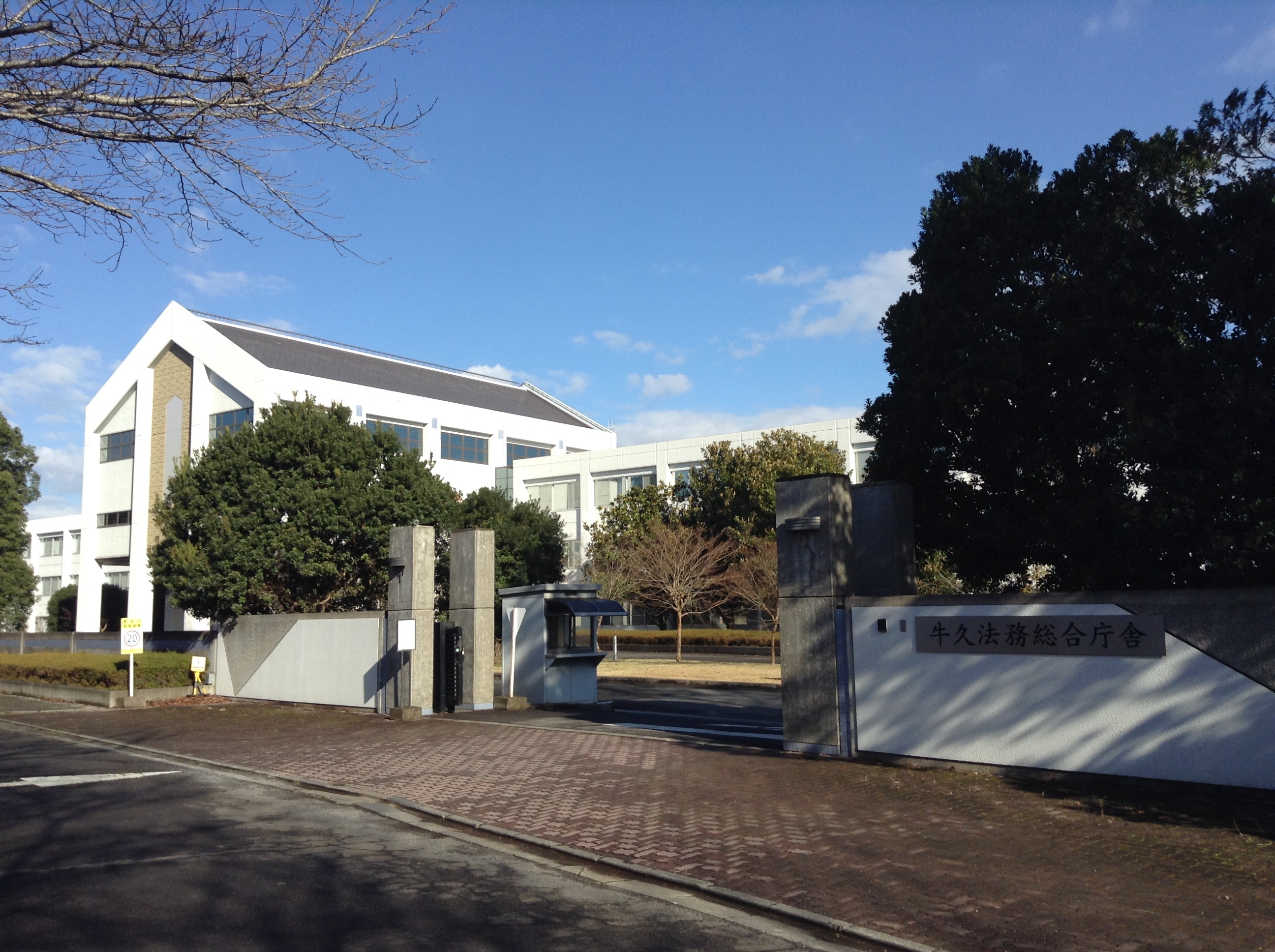
問題の所在
1 恣意的な収容、無期限収容の問題
原告のサファリさんとデニズさんに対して、必要性、合理性、比例性のない「恣意的拘禁」がなされた点に問題があります。
人は誰でも、自由が原則であり、権利です。特に、身体を拘束されない自由は、人の生活にとって最も重要な権利の一つで、これを恣意的・無期限に奪われれば、サファリさんやデニズさんが被ったように、大変な苦痛や絶望を強いられることになります。外国籍で、在留資格がないからという理由で、何年も収容するのは間違っています。
日本が1979年に批准(その条約に拘束されると合意すること)した自由権規約9条1項は、「すべての者は、身体の自由及び安全についての権利を有する。何人も、恣意的に逮捕され又は抑留されない」と定めており、必要性や合理性、比例性を欠く「恣意的拘禁」を禁止しています。
原告のふたりは、 難民申請中で、逃げ隠れするおそれはありません。
デニズさんは日本人と結婚し、10年以上にわたって苦楽を共にしてきました。デニズさんの妻は、デニズさんがどれだけ長い期間収容されても寄り添い続けてきました。
日本語が達者で心優しいサファリさんには、多くの日本人の友人がおり、皆が、サファリさんが安心して日本で暮らせる日を心待ちにしています。 私たちは、そのような2人に対する前述のような入管収容が、必要性や合理性、比例性のない「恣意的拘禁」に当たるため、自由権規約に反すると訴えています。
2 入管法やその運用について
入管法に収容の要件や期間の上限、司法審査の手続が定められていないため、入管が独自の方針で収容を行うことができる運用は、必要のない収容や、収容期間の長期化などに繋がり、問題があります。
現在の出入国管理及び難民認定法(入管法)は、在留資格がない外国籍の人に対し、退去強制令書(強制送還を行う令書)を発付した後は、「送還可能のときまで」収容することができると定めています(52条5項)。そのため入管は、裁判所の判断を経ることなく、無期限に、外国籍の人を入管収容施設に収容しています。
収容された人は、「仮放免」が許可されれば外で生活することができますが、法務省入国管理局長が2018年に出した通達によって、収容に耐え難い傷病者でない限り仮放免を許可せずに収容を継続する、という運用が始まり、収容期間が全体的に長期化しました。前述のように、ハンガーストライキを行った人に対する見せしめのような仮放免・収容がなされたのも、入管法に収容の要件に関する定めがないために、入管が広い裁量によって仮放免や収容を運用していることに原因があります。
3 国連恣意的拘禁作業部会の意見に対する対応について
前述のとおり、入管法が入管収容について司法審査を定めていないため、入管の広い裁量によって収容が続けられてきました。収容を争う途は限定されているため、原告2名は、国連の恣意的拘禁作業部会に助けを求め、それが認められました。 しかし、同作業部会から、ふたりに対する入管収容は自由権規約に違反するという意見が出された後も、国は責任を認めようとせず、賠償もしていません。
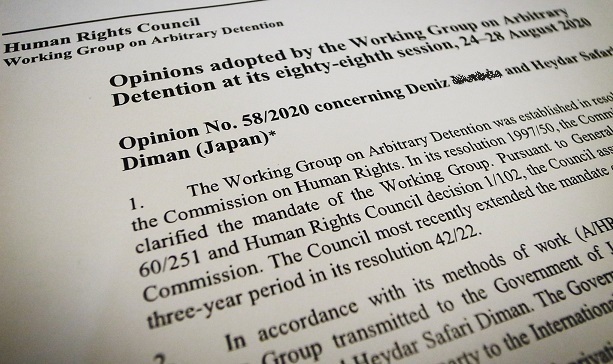
原告が立ち上がった経緯
サファリさんとデニズさんは、今日も、難民として認定されるのを待ちながら、不自由な仮放免生活のままで、長期収容で受けた心身の苦痛に耐えています。国連が違法と判断した収容の犠牲者に対して、国は、一切謝罪することなく、何らの賠償も、収容で受けた心身の傷の治療費の負担もしようとしないのです。
そして現在も、ふたりのように、長期収容に苦しんでいる人々や、仮放免生活の中で長期収容の悪夢や爪痕に苦しみ続けている人々がいます。入管を相手にアクションを起こすことは勇気のいることです。しかし、サファリさんとデニズさんは、自分のためだけではなく、虐げられている多くの人のために立ち上がり、この訴訟を提起することを決意しました。
訴訟を通して実現したいこと
「サファリさんとデニズさんに対する入管収容が自由権規約に違反する」という意見は、すでに国連恣意的拘禁作業部会から出されています。
在留資格がないというだけで、必要性、合理性、比例性のない恣意的な収容を入管が続けてきたのは、日本に住む私たちの問題でもあります。私たちは、さらに日本の裁判所でも、日本の入管収容が自由権規約に違反していることを確認することで、社会により広く、入管法と入管収容の運用を変えなければならないと訴えたいと思っています。
それとともに、国には、長期間収容されて心身共に傷ついた人々に対して、賠償をして償うという、当たり前のことをしてほしいと思います。
資金の使途
訴訟提起のための印紙、切手代
研究者、専門家の意見書作成費用 交通費、通信費、コピー代など
通訳・翻訳費用
会場使用料
※上記費用に計上した上でお金が余った場合には、弁護士費用に充てさせていただきたいと思います。
※2023年8月に第一目標であった100万円を達成いたしました。さらに充実した訴訟活動を行うため、ネクスト・ステップとして200万円を目指しています。ご協力の程お願いいたします。
担当弁護士のメッセージ
入管の長期収容問題はこれまでも深刻でしたが、2019年に入管収容施設でハンガーストライキ/絶食が広まった後の、2週間仮放免と再収容という扱いは、あまりに非人道的で、許しがたいものでした。それをきっかけに、国連恣意的拘禁作業部会への通報を行うことにしましたが、さらに根本的な問題である、無条件、無期限、司法審査のない収容という問題を、正面から問うことにしました。
この裁判では、自由権規約9条1項(恣意的拘禁の禁止)と、9条4項(拘禁にあたって司法審査を受ける権利)という、国際人権条約を法的な根拠として主張しています。
日本では、残念ながら国際人権条約があまり浸透しておらず、政府は国連の条約に基づく審査で勧告が出ても、無視してきました。入管収容問題についても、これまで自由権規約委員会や拷問禁止委員会、人種差別撤廃委員会から、問題点を指摘されてきましたが、日本政府は全く耳を傾けてきませんでした。
私たちは、日本の入管収容が国際人権条約に違反することを日本の裁判所でも明らかにすることで、入管収容はもちろん、様々な人権問題について、日本政府が国連機関の指摘を尊重し、国際人権条約に沿った対応がなされるようにしたいと考えています。
担当弁護士の紹介
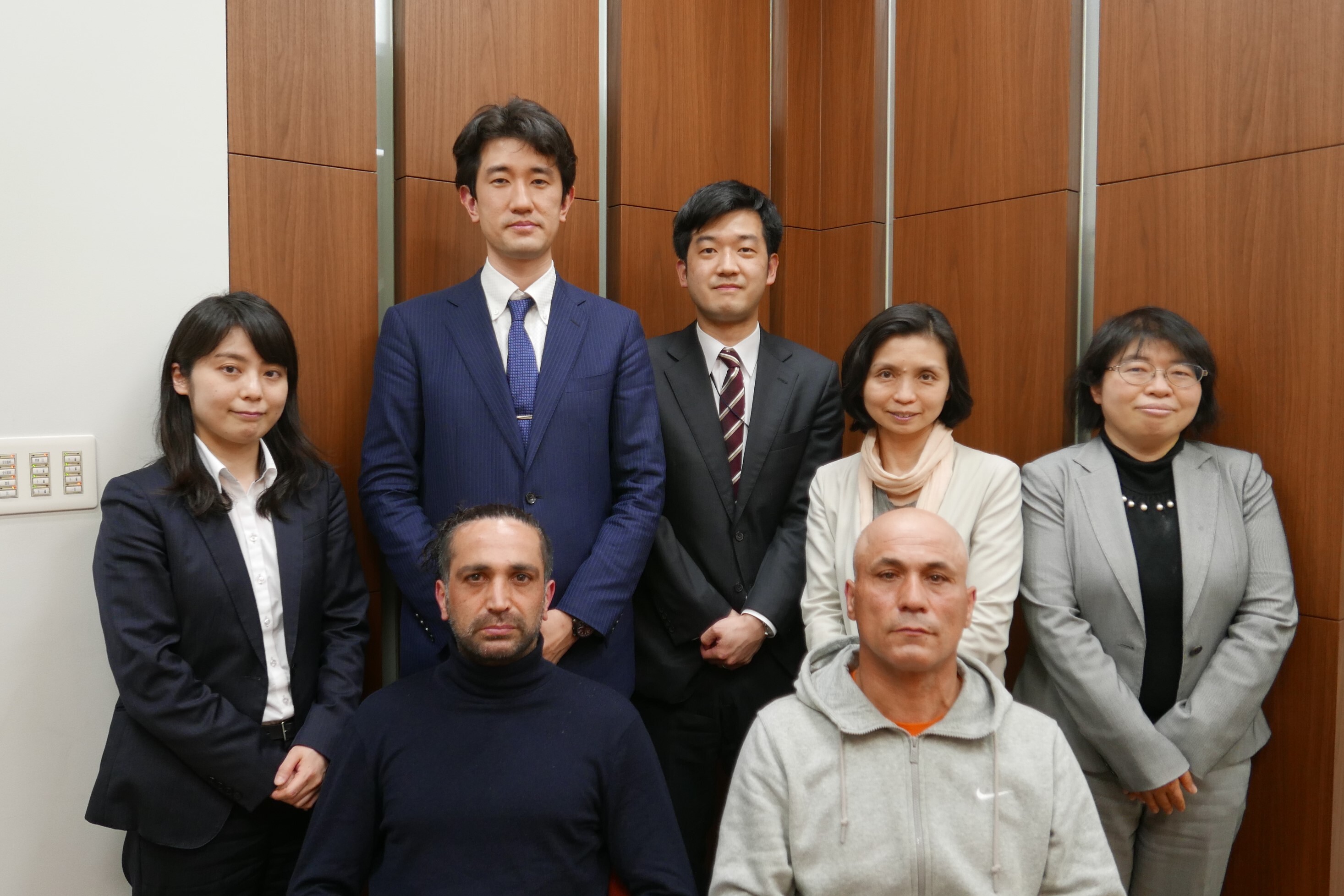
▲担当弁護士と、原告のデニズさん、サファリさん
浦城知子・東京弁護士会・信和法律事務所
小川隆太郎・東京弁護士会・東京共同法律事務所
駒井知会・東京弁護士会・マイルストーン総合法律事務所
鈴木雅子・東京弁護士会・いずみ橋法律事務所
岡本翔太・東京弁護士会・翔栄法律事務所
私たちは、難民事件をはじめとする外国籍の方々の人権問題に取り組んでいます。人権に国境はないという信念の下、国際人権条約を日本の裁判に活かしたいと思っています。
入管収容問題はここ数年で、社会から注目されるトピックになりました。 入管収容の国際人権条約違反を正面から問う今回の訴訟に、ご支援いただければ幸いです。
One year after the first trial date on May 31, 2022, we were able to reach our first goal of 1,000,000 yen.
With your donation, we were able to ask a researcher of international law to prepare an opinion report to be submitted to the court. Our team would like to express our sincere gratitude to you.
In order to enhance our litigation activities further, we have decided to aim for 2 million yen as the next step. Although the Immigration Law was revised in June 2023, it does not change the fact that the Immigration Bureau decides whether to detain a person or not and that there is no judicial review.
We ask for your continued cooperation in clarifying in court that immigration detention in Japan does not meet the standards of the Covenant on Civil Liberties.
Summary of the case
This case is a lawsuit seeking confirmation that the immigration detention of the plaintiffs, Mr. Safari and Mr. Deniz, was illegal because it constituted "arbitrary detention," which is prohibited under the International Covenant on Civil and Political Rights (ICCPR), and to seek compesation from the government for the illegal detention of the plaintiffs.
Mr. Safari, from Iran, and Mr. Deniz, a Kurd from Turkey, were not recognized as refugees when they applied for refugee status and still do not have living status. As a result, the two have been detained by the immigration authorities for more than three and a half years since 2016 and have not been able to live freely.
2016: Mr. Deniz has been detained at the immigration center since May and Mr. Safari since June.
Around June 2019: Went on a Hunger strike. From July 2019: Got provisional release for 2 weeks repeatedly.
October 2019: Report to the UN Working Group on Arbitrary Detention (WGAD)
(Mr. Deniz has got provisional release since March 2020 and Mr. Safari has got provisional release since April 2020 to the present)
September 2020: the WGAD expressed the opinion that "the immigration detention of the plaintiffs was arbitrary and violates the ICCPR”.
The two had been detained indefinitely by the immigration authorities since 2016. As a result, they were no longer free to do the things they take for granted, such as seeing family and friends, going out, eating together, making phone calls, using the Internet, and so on. Furthermore, because there was no upper limit to the length of their detention, they spent many painful days in anxiety and despair, as if they were in a tunnel with no way out, not knowing how long they would be detained for.
There is a system of "provisional release" for immigration detainees, whereby the detainees are released after paying a deposit. Although they applied many times for it, they were not approved.
In June 2019, a Nigerian national starved to death at the Omura Immigration Center, which led to widespread hunger strikes/fasting in immigration detention facilities. Mr. Safari and Mr. Deniz also fasted because they were trapped in their minds by the harsh conditions of detention. However, as if to make an example of some of the fasting detainees, including the two, the immigration authorities began to grant them provisional release for a short period of time, around two weeks, and then detain them again two weeks later. The fear that after two weeks they would be returned to the detention center with no way out deeply damaged their spirits. Currently they are out of detention center as they got provisional release, still they are suffering from the aftereffects of their detentions.
The two decided to seek help from the international community regarding these inhumane practices of the immigration authorities, and in October 2019, they notified the WGAD. As a result, the WGAD issued an opinion in response to their report, stating that the detention of the two men was arbitrary and violated the ICCPR, etc.
By filing this lawsuit in the Japanese courts, the two will seek confirmation that their immigration detention was illegal as it constitutes "arbitrary detention," which is prohibited under the ICCPR, as pointed out by the WGAD, and will seek damages from the Japanese government that illegally detained them, with the aim of changing the immigration detention system in Japan.

The issues
1. Arbitrary and indefinite detention issues
The problem lies in the fact that "arbitrary detention" was carried out against the plaintiffs, Mr. Safari and Mr. Deniz, without necessity, reasonableness and proportionality.
Liberty is the principle and right of every person. In particular, freedom from physical restraint is one of the most important rights in a person's life, and arbitrary and indefinite deprivation of this right will cause great suffering and despair, as Mr. Safari and Mr. Deniz have suffered. It is wrong to detain them for years because they are foreign nationals and do not have living status.
Article 9, paragraph 1 of the ICCPR, which Japan ratified (agreeing to be bound by) in 1979, states that "Everyone has the right to liberty and security of person. No one shall be subjected to arbitrary arrest or detention." It prohibits "arbitrary detention" that lacks necessity, reasonableness, and proportionality.
Both plaintiffs are in the process of applying for refugee status, and there is no possibility of them running away and hiding. Mr. Deniz is married to a Japanese national, with whom he has shared his struggles for more than a decade.
Mr. Deniz's wife has been there for him no matter how long he has been detained.
Mr. Safari speaks fluent Japanese and has many Japanese friends, all of whom are looking forward to the day when he can live in Japan with peace of mind.
We have complained that the aforementioned immigration detention of two such persons constitutes "arbitrary detention" without necessity, reasonableness, or proportionality, and is therefore contrary to the ICCPR.
2. Immigration Act and its Operation
Since the Immigration Control and Refugee Recognition Act does not stipulate requirements for detention, maximum periods of detention, or procedures for judicial review, the operation allows the Immigration Bureau to conduct detention based on its own policy is problematic because it leads to unnecessary detention and prolongation of the detention period.
The current Immigration Control and Refugee Recognition Act (Immigration Act) stipulates that after a deportation order (a written order to deport) is issued to a foreign national without living status, he/she may be detained "until such time as he/she can be deported" (Article 52, paragraph 5). Therefore, the Immigration Bureau can detain foreign nationals in immigration detention facilities indefinitely without a court decision.
Detainees can live out if they are granted "provisional release". However, a notice issued in 2018 by the Director of the Immigration Bureau of the Ministry of Justice began operating under the practice of continuing detention without granting provisional release unless the person is too injured or ill to endure detention, thus lengthening the duration of detention. As mentioned above, the reason why the detention after short provisional release of hunger strikers was carried out is that the Immigration Act does not stipulate the requirements for detention, so the Immigration Bureau operates provisional release and detention at its own wide discretion.
3. Response to the Opinion of the UN Working Group on Arbitrary Detention
As noted above, because the Immigration Act does not provide for judicial review of immigration detention, detention has been carried out at the wide discretion of the Immigration Bureau. Because the way for contesting detention are limited, the two plaintiffs sought help from the WGAD and it was granted.
However, even after the WGAD expressed the opinion that the immigration detention of the two violated the ICCPR, the government has refused to acknowledge its responsibility and has not made any compensation.

The circumstances of the plaintiffs stood up
Mr. Safari and Mr. Deniz remain on provisional release, waiting to be recognized as refugees, and enduring the physical and mental anguish caused by their long-term detention. The Japanese government has never apologized to the victims of the detention, which the WGAD has deemed illegal, and has refused to provide any compensation or to pay for the medical treatment of the physical and mental injuries they have suffered.
And even today, there are people like the two who are suffering from long-term detention, and are still suffering from the traumas and damages of long-term detention in their lives on provisional release. It takes courage to take action against the immigration authorities. However, Mr. Safari and Mr. Deniz decided to file this lawsuit not only for themselves, but for many others who are being oppressed.
The achievement we want with this lawsuit
The WGAD has already issued an opinion that "immigration detention against Mr. Safari and Mr. Deniz violated the ICCPR."
The fact that the Immigration Bureau has continued to arbitrarily detain people without necessity, reasonableness, or proportionality simply because they lack living status is also a problem for those of us living in Japan. We would like to further appeal to the Japanese courts to confirm that immigration detention in Japan is in violation of the ICCPR, thereby appealing society more broadly to change the Immigration Act and the operation of immigration detention.
Also, we want the Japanese government to take responsibility and pay compensation to those who have been physically and mentally injured by long-term detention.
How the funds are used
Fiscal stamps, postage stamps, etc. for the trial expenses.
Researcher / expert’s opinion expenses
Fees for transportation, communication, photocopying, etc.
Interpretation / translation fees
Venue rental fees
*If there is any money left after accounting for the above expenses, we would like to use it for legal fees.
Message from the attorneys in charge
The problem of long-term detention in Japan has always been serious, but the operation of two weeks of provisional release and re-detention after widespread hunger strikes/fasting in immigration detention facilities in 2019 was so inhumane and inexcusable. This led us to make a report to the WGAD, but also to ask the more fundamental issue of detention without conditions, indefinitely, and without judicial review, head on.
The case is based on the international human rights treaties, Article 9(1) of the ICCPR (prohibition of arbitrary detention) and Article 9(4) (right to judicial review in detention).
Unfortunately, international human rights treaties have not been well received in Japan, and the government has ignored recommendations made by the UN treaty-based review. The Japanese government has not followed the recommendations of the Human Rights Committee, the Committee against Torture, and the Committee on the Elimination of Racial Discrimination on the issue of immigration detention.
We hope that Japanese courts will clarify that immigration detention in Japan violates international human rights treaties, so that the Japanese government will respect the points made by UN organizations on various human rights issues including immigration detention, and follow the international human rights treaties.
Attorneys in Charge

▲Attorneys in charge and the plaintiffs, Mr. Deniz and Mr. Safari
Tomoko Uraki, Tokyo Bar Association, Shinwa Law Office
Ryutaro Ogawa, Tokyo Bar Association, Tokyo-kyodo Law Office
Chie Komai, Tokyo Bar Association, Milestone Law Office
Masako Suzuki, Tokyo Bar Association, Izumibashi Law Office
Shota Okamoto, Tokyo Bar Association, Shoei Law Office
We work on human rights issues for foreign nationals, including refugee cases. Based on our belief that there is no border in the human rights, we hope to use international human rights treaties in the Japanese courts procedure.
The issue of immigration detention has become a topic of public attention in the past few years in Japan. We hope that you will support this lawsuit, which seeks to challenge the violation of international human rights treaties by immigration detention.
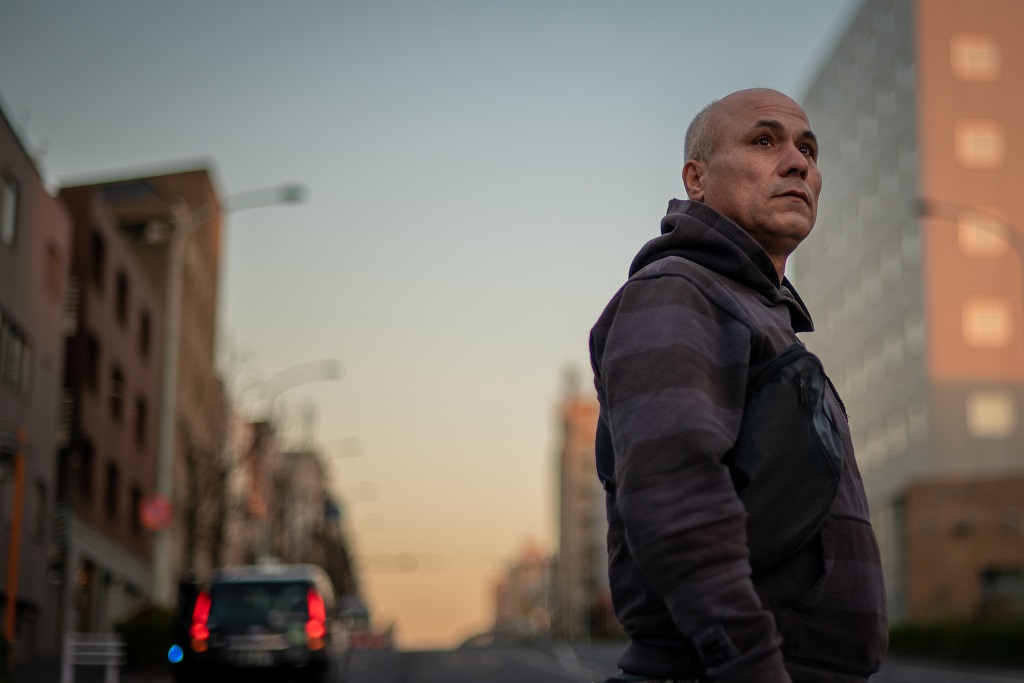
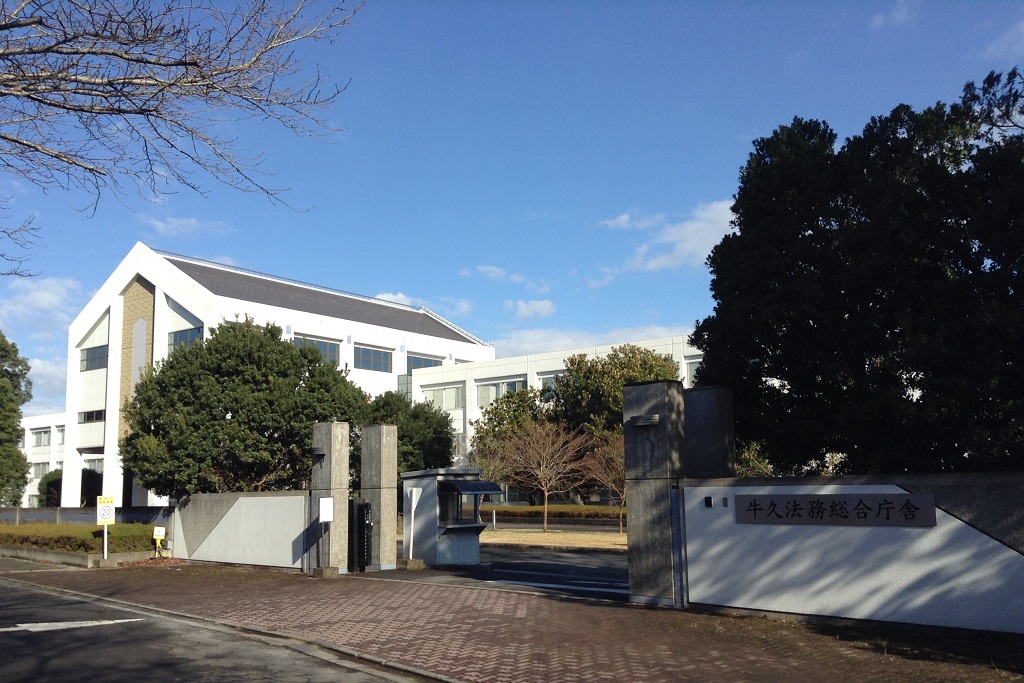 2023. 2. 28自分の国に帰れないから、助けてとお願いしている。ただそれだけで、同じ人間だから難民申請中のイラン国籍のサファリさんと、彼を支える駒井弁護士のストーリー2023. 2. 28続きはこちら Click here to read more.
2023. 2. 28自分の国に帰れないから、助けてとお願いしている。ただそれだけで、同じ人間だから難民申請中のイラン国籍のサファリさんと、彼を支える駒井弁護士のストーリー2023. 2. 28続きはこちら Click here to read more.
 2023. 2. 28I am asking for help because it’s impossible for me to return to my home country. That’s the only thing that differentiates me from you as a human being.Story of a refugee from Iran, Safari, and his lawyer, Ms. Komai2023. 2. 28続きはこちら Click here to read more.
2023. 2. 28I am asking for help because it’s impossible for me to return to my home country. That’s the only thing that differentiates me from you as a human being.Story of a refugee from Iran, Safari, and his lawyer, Ms. Komai2023. 2. 28続きはこちら Click here to read more.